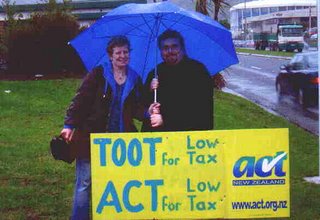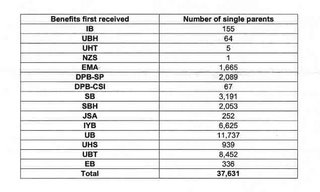While we quibble about public-private partnerships to build roads (and John Key even uses the public/private concept to support government getting into the private sector ie KiwiBank buying into the home loan industry) here's a government getting out of maintaining existing highways.
In the biggest highway privatization deal in U.S. history, state officials Wednesday signed an agreement Wednesday to turn the 157-mile Indiana Toll Road over to a foreign consortium that will operate it for a profit for the next 75 years.
No Brainer With Angela Rayner: Steve Reed Is Not A Bully!
49 minutes ago

















